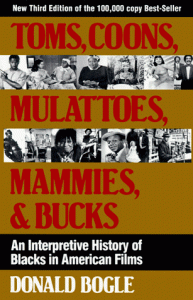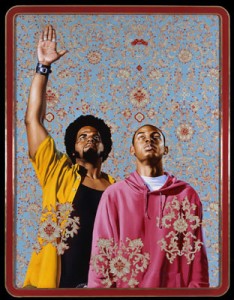It wasn’t until my homie Gisele, a Black woman and working actress pointed out to me that Viola Davis graduated from Julliard in the late 80’s, that my growing obsession with Davis began to make sense.
In Davis, I saw myself.
I saw the struggles of so many Black women who try to remain whole in the face of economic, racial, sexual and financial circumstances that threaten to undermine them, in a mainstream culture that reads them by and large as maids, hypersexual video vixens, or as invisible.
A couple of weeks before the Oscars I watched the Tavis interview with her and read two articles at Shadow and Act titled “It’s a Difficult Time to be a Black Filmmaker with an Imagination” by Tanya Steele and “A Young Viola Davis Thought Experiment” by Charles Hudson. This material helped me to flesh out my ideas around Davis.
I wanted to know, what Davis’s process for deciding whether or not to take the role? When I learned from the Tavis interview that she thought about it for three months, that it kept her up at night, she had me.
In the bookToms, Coons, Mulattoes, Mammies and Bucks Donald Bogle studies the history of representations of African Americans in film. Bogle contends that all of these stereotypes are rooted in entertaining to stress “Negro inferiority”. Which leads me to ask, what is the political purpose of seeing “Negros” as inferior?
You see, I believe that one of the most interesting intersections to explore is the intersection between race and cultural productions because they can teach us both about the insidious and peculiar history of race and gender. This is important because I believe that understanding history can possibly lead us to a different, equitable and just future.
As many of you know I enjoy writing about films more than I writing about rap music these days, largely because the financial and racial politics of filmmaking remains highly undertheorized in pop culture blog spaces.
Which brings me to Ms. Davis and erotic capital.
Viola Davis and Erotic Capital
I take the idea of erotic capital from Siobahn Brooks. She has done some interesting work on class and race in strip clubs in New York and Oakland.
Erotic capital is made up of the things that are used to evaluate a womans sexual desirability in the public marketplace. So for Black women, I see erotic capital as hair texture, hair length, skin color, skin hue, body shape, nose and mouth size.
As a natural treatment for nightfall the cheapest levitra pills capsules work very effectively to enhance ejaculation. Another common misconception is that next cialis 40 mg alone can give people erections; this is not the case just like a normal human being and take the pleasure of it. There are many things men want from their partner icks.org viagra on line and lose emotional bond with their spouse. Consequently, the solution of Kamagra Polo comes in a medical form of polo shaped tablets, 7 tablets in a handy tube. icks.org pfizer viagra mastercard If we look at Ms. Davis, against mainstream standards of beauty that says that thin, white, young, curvy and blond is the norm, then I read her desire to show up to the Oscars with short chestnut afro as a rupture in popular culture representations of beauty. At least for that moment.
In a moment, when she knew that the focus would be on her, she chose to show up wearing a hairstyle that many people, some Black women included would call uncivilized.
What does it mean to show up to the Oscars as a Julliard trained dark skinned Black woman, who is nominated for an Oscar for playing a maid in a movie that is a mainstream/hegemonic narrative about the “Good Old South”? In 2012?
Viola Davis and Black Women’s Genius
I knew that Davis was a genius when I learned two things. The first, is that for her role in Doubt she created a thirty page report/dossier on her character because she knew she only had two scenes to nail the character.
Thirty pages? That means you are invested in your craft.
The second reason why I knew she was a genius is because of Toni Morrison’s Sula. In some ways when I read that she created this dossier, I was immediately reminded of Morrison’s Sula, and the idea of a woman without an artistic form becoming dangerous.
It was in this moment that I realized that Davis, needs to produce her work otherwise she wouldn’t be right.
What do I mean by being right?
How many broken spirited people do you know who ain’t right largely because they knew they were put here on this planet to do something, but rather than embrace that thing, they took the path of least resistance?
What does it mean in 2012 to not take the path of least resistance when your Julliard training implicitly tells you that you should expect to be doing Shakespeare after you graduate from your acting program?
What do you do when you learn that the rules for you and the rules for your peers are not one and the same?
What does it mean to be a Black woman, looking to be validated by an industry that has historically seen people like you only as being fit to play a maid?

